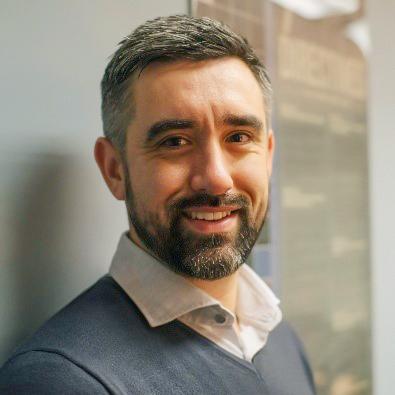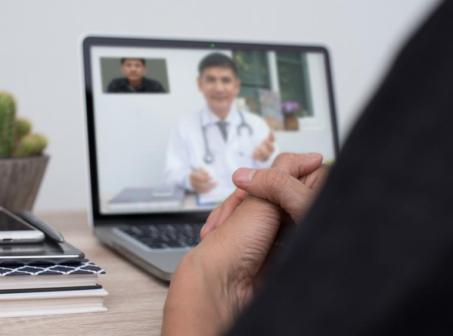- Managing your Practice
-
- Your Benefits
-

Introducing the ultimate Club MD experience
From work to play, and everything in between, we provide you with access to hundreds of deals from recognizable, best-in-class brands, elevating every facet of your life – from practice supports to entertainment, restaurants, electronics, travel, health and wellness, and more. Your Club MD membership ensures that these deals are exclusive to you, eliminating the need to search or negotiate.
Welcome to the ultimate Club MD experience. Your membership, your choices, your journey.
-
- Advocacy & Policy
-
- Collaboration
- News & Events
-

Stay Informed
Stay up to date with important information that impacts the profession and your practice. Doctors of BC provides a range of newsletters that target areas of interest to you.
Subscribe to the President's Letter
Subscribe to Newsletters
-
- About Us
-
First Nations Virtual Doctor of the Day – culturally safe primary care province-wide
June 20, 2020
News
“You can’t replace face-to-face, the physical space, the interaction, but this really does help meet a unique need.” That is Dr Kelsey Louie’s description of a First Nations Virtual Doctor of the Day service implemented in March in response to the COVID-19 pandemic.
 Dr Louie is a Medical Officer for the First Nations Health Authority (FNHA), and an Indigenous physician providing care as part of the service.
Dr Louie is a Medical Officer for the First Nations Health Authority (FNHA), and an Indigenous physician providing care as part of the service.
The First Nations Virtual Doctor of the Day was created in partnership by the FNHA and the Rural Coordination Centre of BC (RCCbc), to ensure all First Nations’ people living in BC could readily access primary care during the COVID-19 crisis. RCCbc is funded by the Joint Standing Committee on Rural issues (JSC), a partnership of Doctors of BC and the BC Ministry of Health.
The First Nations Virtual Doctor of the Day program enables First Nations people living in BC without a doctor, or with limited access, to schedule a phone or video appointment with a doctor, seven days a week from 8:30am – 4:30pm. Since March, more than 400 patients across BC have accessed the service from 32 doctors. All physicians have enhanced training or experience in cultural safety and humility, and a third are Indigenous.
The feedback from patients accessing the service has been overwhelmingly positive. Patients appreciate the responsiveness and flexibility of the service, from initial contact with a Medical Office Assistant, to offers of help with technology, timeliness of physician callbacks (often within an hour), and readiness of doctors to work with patients to access testing, treatment and prescriptions.
Dr Louie describes why working virtually with patients is so important:
“I’m in Victoria, but I communicate with people in Port Alberni, people from the north of the island, or on the west coast. They’re hundreds of kilometers away from me, so I need to rely on the patient. ‘If you need a prescription where would you go? What is it called?’ Or if you need to go and get blood work, ‘do you have a lab in your community? How far would you have to travel?’ I can Google it, but I also have to work with them. We are kind of co-navigating a new system.”
Using technology to provide culturally safe and appropriate care
Bringing primary care services and resources to patients during the COVID pandemic is a key component of the service, yet of equal or greater importance is the quality of care being delivered. Dr Louie highlights the lack of culturally safe care as a significant barrier for First Nations peoples and communities; as significant as lack of access due to travel, and the availability of providers and services.
“The quality piece is a big issue we hear from communities. Unfortunately, some of the care that is being delivered is not necessarily done in a safe way, which is adding to issues of attachment. On one hand, it’s great that a person has access to their family doctor, but if it is not a healthy relationship, a patient or client is not necessarily going to want to access that care anymore,” he explains.
Asked what ‘unsafe care’ looks like, Louie replies:
“Unsafe care relates to whether there’s a lack of acknowledgement of the power dynamic that exists between a provider and a patient. Perhaps a lack of cultural understanding and appreciation of the historical context that still exists or has shaped the individual’s experience with health care. As physicians involved in this service, we want to ensure a safe space for our patients, which means a space where they feel listened to, and comfortable opening up and sharing their feelings.”
Issues of access and attachment for primary care are not limited to rural, remote and isolated communities. First Nations’ people living in urban centres are also encouraged to connect with the service.
“Statistically about 50 per cent of our First Nations’ community are living ‘away from home.’ I think we can generalize and say a lot of community members are quite transient and will not necessarily live on their traditional territories for long periods of time but may be moving around and in flux. Without long-term plans for being in one place for a long period of time, it’s more difficult to get somebody to agree to take on care.”
Looking beyond the COVID pandemic
Currently the service is funded for a year, with a review to follow. Early successes offer opportunities to expand beyond the core service to incorporate addictions medicine, psychiatry, and other specialty services.
 “I think we are seeing more and more of the specialties come into this space. Primary care is a big piece, but what do you do when somebody really needs more specialized care? Do we have the ability to expand this virtual care to other areas? FNHA, along with RCCbc, is really looking to tap into these.”
“I think we are seeing more and more of the specialties come into this space. Primary care is a big piece, but what do you do when somebody really needs more specialized care? Do we have the ability to expand this virtual care to other areas? FNHA, along with RCCbc, is really looking to tap into these.”
On the bigger picture, Louie adds, “As a whole, not just for the First Nations Virtual ‘Doctor of the Day’, but virtual care in general, I do think it is going to be around to stay. For a lot of people, I think it simplifies primary care. It makes things a lot easier. There are going to be hundreds of different examples of how this makes things a lot easier.“
A testimonial from a patient on Vancouver Island summarizes the value of the program:
“I have utilized the Doctor of the Day twice now, and honestly I don’t know what I would have done without both of the incredible doctors I was fortunate to access this way. Two completely unrelated medical situations, two different doctors, but in each case, I left the appointment in disbelief with what had just transpired. Both possessed a compassionate nature which for me rates a doctor way more than anything else, provided exceptional advice, diagnosis and follow through. The filled prescriptions were waiting for me at the pharmacy. Although we all hope that we never experience what we have been going through again, it leaves this positive legacy behind. My greatest wish is that the Doctor of the Day will continue after the pandemic."
Visit Virtual Doctor of the Day for more details, and RCCbc for information on other rural programs, projects and initiatives supported by the JSC in BC.
Have a comment or question about this article? Drop us a line at




